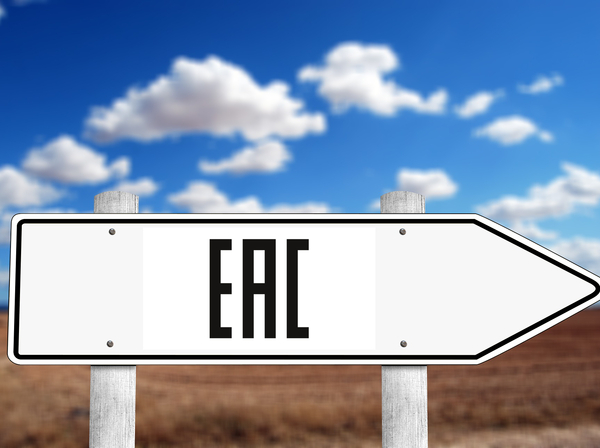Woven and knitted underwear, leather and textile accessories, felt and nonwoven materials, shoes, fur and fur products, leather and leather products, machine-made carpeting.
When going to supply your textile products to Customs union (CU) countries (current Eurasian Economic Union - EAEU) you need to apply for the relevant approval procedure. In other words, you need to confirm the quality of the applied products and obtain EAC mark. This marking relevant for all EAEU countries such as Russia, Belarus, Kazhakstan, Armenia and Kirgizia.
MAIN REGULATIVE DOCUMENTS:
There are two main regulative documents for textile products:
Both assume two approval forms – the Certificate of Conformity
or Declaration of Conformity. Necessary form can be determined depending on the age group and clothes type (t-shirt, skirt, blouse, trousers, dress, coat, scarf etc.). The CoC/DoC can combine several products types.
TR CU 007/2011 APPLICATION FIELD:
TR CU "On the safety of products intended for children and teenagers" (ТR CU 007/2011) is for all textile products for children up 14 years and for teenagers from 14 to 18 years old.
This regulation also assumes the additional approval form such as State Registration Certificate (SRC) sometimes called hygienic approval. SRC required for the following products:
- Woven and knitted underwear for children up to 3 years;
- Knitted hosiery for children up to 3 years;
- Summer hats for children up to 3 years.
TR CU 017/2011 APPLICATION FIELD:
TR CU "On the safety of light industry products" (ТR CU 017/2011) is applied to
- Textile materials;
- Apparel and knitwear;
- Machine-made carpeting;
- Leather and textile accessories;
- Felt and nonwoven materials;
- Shoes;
- Fur and fur products;
- Leather and leather products;
- American cloth.
BASIC INQUIRY INFO:
In order to understand the scope of certification procedures the information about the composition and functinal group of each applied product is efficient because this information determines the required amount of tests and samples.
FUNCTIONAL GROUPS:
According to the Customs union Technical Regulation, the applied products should be classified to functional groups (sometimes called clothes layers):
- The 1st group includes clothes and products that have direct contact with user's skin, such as underwear and bedding, corsetry and swimwear, summer hats, hosiery, handkerchiefs and headscarves etc.
- The 2nd group clothing includes products that have limited contact with the skin of a user in particular dresses, blouses, shirts, pants, skirts, unlined suits, sweaters, jumpers, hats (except summer), mittens, gloves, hosiery products of the autumn-winter range and other similar products.
- The 3rd group includes coats, short coats, jackets, raincoats, lined suits, newborn envelopes and other. Usually, these clothes use to be worn on 2nd layer textile products.
WHO CAN APPLY FOR CERTIFICATION:
In accordance with the Technical Regulations of the Customs union, the manufacturer can apply for certification only through the Customs union residential company. It means that a Russian, Kazakhstan or other CU country’s company should bear responsibility for the products quality on the base of Local representative agreement. WorldWideBridge LLC can also act as your representative, so you can easily supply the certified products through various importer with one set of approval documents.
Looking forward to receiving your inquiries through
[email protected] with basic information on your products:
- product type,
- composition,
- HS code.
Certification experts will be pleased to consult you in your own language
Important information, legislative agenda









